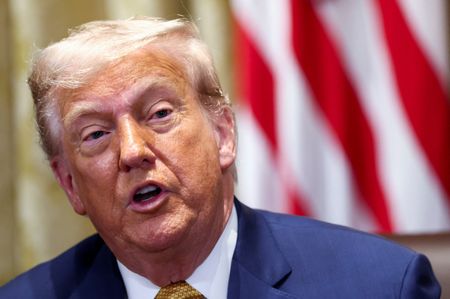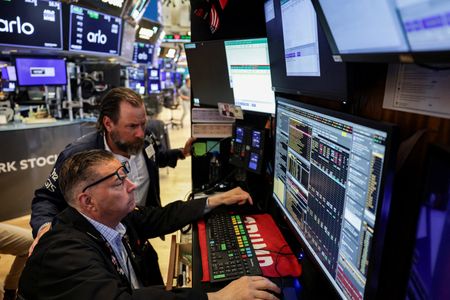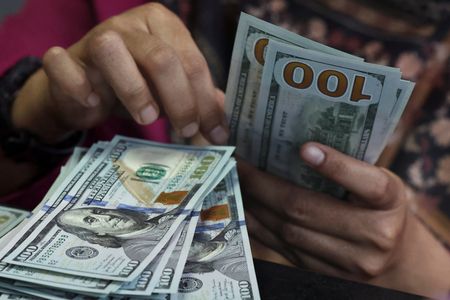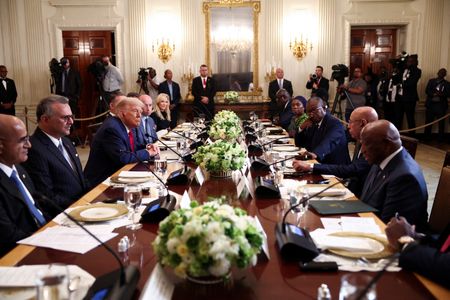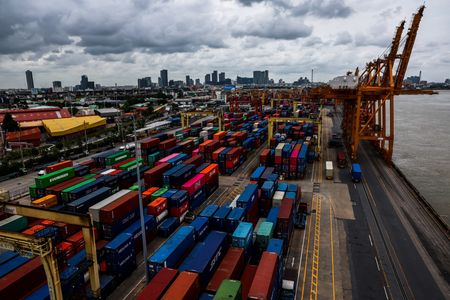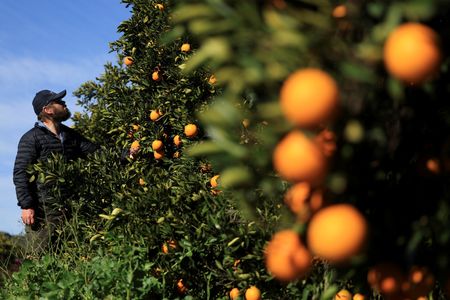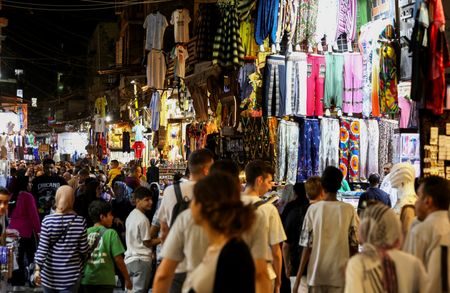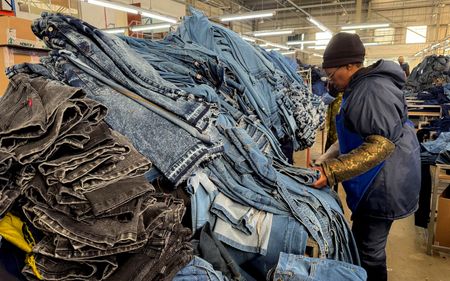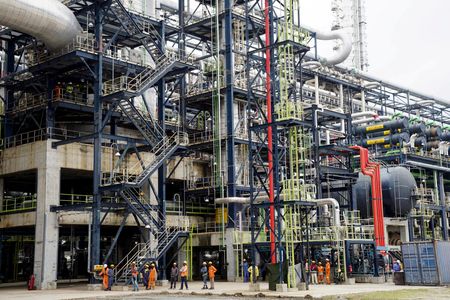By Nandita Bose, Andrea Shalal and Jeff Mason
WASHINGTON (Reuters) -President Donald Trump told leaders from five African nations on Wednesday that he was shifting the U.S. approach to the continent from aid to trade and that the United States is a better partner for Africa than China.
Trump, who has shuttered the U.S. Agency for International Development and slashed funding for programs that help Africans, hosted leaders from Gabon, Guinea-Bissau, Liberia, Mauritania and Senegal for a discussion about business opportunities in their countries.
Trump said his administration was committed to strengthening friendships in Africa, which he hoped to visit at some point.
“We’re shifting from aid to trade,” he said at the start of a White House meeting. “There’s great economic potential in Africa, like few other places. In many ways, in the long run, this will be far more effective and sustainable and beneficial than anything else that we can be doing together.”
The African leaders, in turn, heaped praise on the U.S. president for brokering peace deals around the world and expressed support for his receiving a Nobel Prize – a sign that they, like many other foreign leaders, appear to have learned how well flattery goes over with the former New York businessman.
Liberian President Joseph Boakai said he supported Trump’s efforts to make “America great again,” a reference to Trump’s political slogan, and encouraged U.S. investment in his country.
Trump praised Boakai’s English and asked him where he had learned it. Liberia was founded by freed slaves from America and English is its official language; Boakai said he learned it there.
“We are not poor countries. We are rich countries when it comes to raw materials. But we need partners to support us and help us develop those resources,” said Brice Clotaire Oligui Nguema, president of Gabon. “You are welcome to come and invest. Otherwise, other countries might come instead of you.”
This week’s mini-summit marks the latest effort by successive U.S. administrations to counter perceptions of U.S. neglect of a continent where China has increasingly made economic inroads.
“We treat Africa far better than China or anybody else, anyplace else,” Trump said.
COMPLICATED HISTORY
Trump did not visit Africa during his first term, though his wife, Melania, did. Some African politicians labeled Trump a racist in 2018 after he was reported to have described some immigrants from Africa and Haiti as coming from “shithole” countries.
In May, Trump confronted South African President Cyril Ramaphosa with explosive false claims of white genocide and land seizures during a tense White House meeting.
But Wednesday’s meeting did not have any such fireworks. After repeated compliments from the leaders, Trump quipped that he could “do this all day long.”
Africa experts are waiting for Trump to announce dates for a broader summit with African leaders, possibly in September around the time of the United Nations General Assembly.
The U.S. International Development Finance Corporation (DFC) said earlier in the day it would provide project development funding for the Banio Potash Mine in Mayumba, Gabon, helping Gabon reduce its dependence on imports.
“DFC’s efforts not only benefit the countries and communities where they invest but also advance U.S. economic interests by opening new markets, strengthening trade relationships, and promoting a more secure and prosperous global economy,” said DFC head of investments Conor Coleman.
Trump’s government continues to send out letters notifying trading partners of higher tariff rates taking effect on August 1 and has launched a new front in his trade war against members of the BRICS group of developing countries.
His administration has also axed huge swaths of U.S. foreign aid for Africa as part of a plan to curb spending it considers wasteful and focus on an “America First” agenda.
Those cuts could result in more than 14 million additional deaths by 2030, research published by The Lancet medical journal showed last week.
Senior U.S. officials have said that Washington wants to prioritize trade and investment over charity-based assistance and will focus on creating more opportunities for U.S. firms.
All five countries invited have abundant natural resources, including manganese, iron ore, gold, diamonds, lithium and cobalt, which are essential for use in current technologies. China has invested heavily across the continent in recent years, especially in resource extraction.
But African Union officials question how Africa could deepen trade ties with the U.S. under what they called “abusive” tariff proposals and visa restrictions largely targeting travelers from Africa. The top U.S. diplomat for Africa, Ambassador Troy Fitrell, has dismissed allegations of unfair U.S. trade practices.
(Reporting by Nandita Bose, Andrea Shalal, and Jeff Mason; additional reporting by Matt Spetalnick, Christian Martinez and Maiya Keidan; editing by Deepa Babington and Don Durfee)

